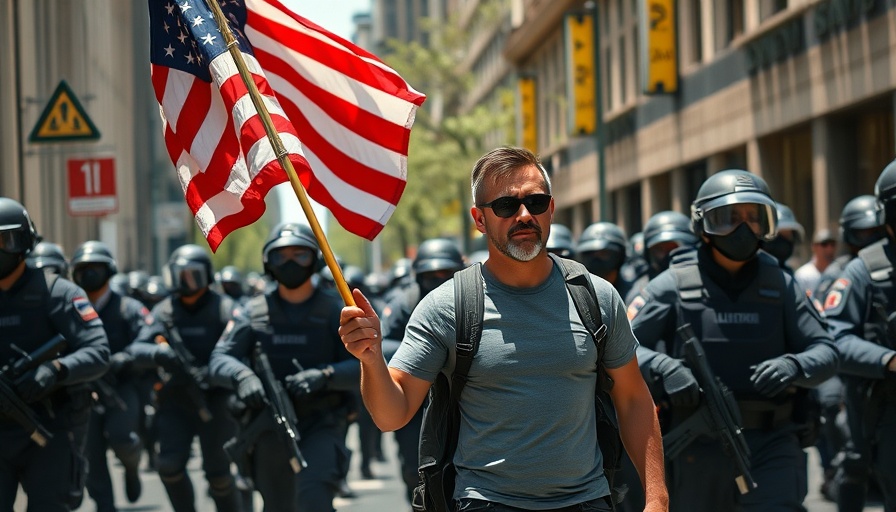
Trump's Use of Military Forces: A Legal Dilemma Unfolds
In a landmark decision, U.S. District Judge Charles Breyer has deemed the deployment of military troops by the Trump administration to Los Angeles during immigration raids illegal. This ruling, which references the Posse Comitatus Act—a law intended to limit the military's role in civilian law enforcement—has sparked conversations around the legal boundaries of military intervention in domestic affairs.
The Implications Beyond Los Angeles
Judge Breyer's decision has broader implications not just for Los Angeles but potentially for military deployments across the United States. The deployment of approximately 5,000 Marines and National Guard troops in June raised considerable debate about the federal government’s authority versus state rights. This ruling could set a precedent for how military forces are managed in times of such operations and could deter similar actions in other states.
Understanding the Posse Comitatus Act
The Posse Comitatus Act of 1878 was established to prevent military personnel from acting as domestic law enforcement agents in civilian situations. Breyer's ruling highlighted that President Trump exceeded his authority when mobilizing the National Guard against the will of local authorities, such as California Governor Gavin Newsom and Los Angeles Mayor Karen Bass. By connecting the deployment to a public safety emergency invoked during unrest, the administration has raised controversy around the misuse of military powers.
The Call for a National Police Force?
In his ruling, Breyer expressed concern that Trump’s actions suggested a move toward creating a national police force, with the President at its helm. This perspective has drawn swift responses from various civil rights leaders, emphasizing the dangers of allowing military forces to take on roles traditionally occupied by civilian law enforcement. Critics fear that such a shift could lead to increased militarization of police forces, further complicating community trust and public safety.
What’s Next for the Legal Battles?
The Ninth Circuit Court of Appeals has placed a pause on Breyer’s initial ruling, allowing the troops to remain in Los Angeles while legal challenges unfold. This situation underlines the judicial system's critical role in addressing constitutional issues that arise from executive actions. Observers are closely watching how this case will be resolved and what it means for future military interventions during domestic disturbances.
California's Stand Against Federal Overreach
California has consistently positioned itself against policies it sees as federal overreach. The state's leadership, including both the Governor and Mayor Bass, vehemently opposed the military's presence during the immigration raids in Los Angeles. Their stance is part of a broader movement to safeguard state rights and to ensure that local governments retain control over their law enforcement practices.
The Emotional Impact on Communities
For many residents in Los Angeles and surrounding around areas like Bakersfield, the presence of armed troops can evoke strong emotions. Fear, confusion, and distrust can permeate communities when military forces are seen in civilian spaces. Local residents, particularly in immigrant communities, may now find themselves grappling with feelings of vulnerability and anxiety about their safety and autonomy.
Conclusion: Why This Matters Personally
Understanding these legal implications is critical, not just for those living in urban centers but also for individuals in smaller towns like Bakersfield where national policies influence local security measures. The discussions regarding military intervention highlight crucial questions surrounding civil rights and community safety—issues that resonate deeply in today’s political climate.
As these legal battles continue, it's essential for residents to stay informed and engaged. The future of civilian-military relations depends on our understanding and reaction to these precedents. In doing so, we can help shape a society that upholds liberty while ensuring public safety for all.
 Add Row
Add Row  Add
Add 



Write A Comment